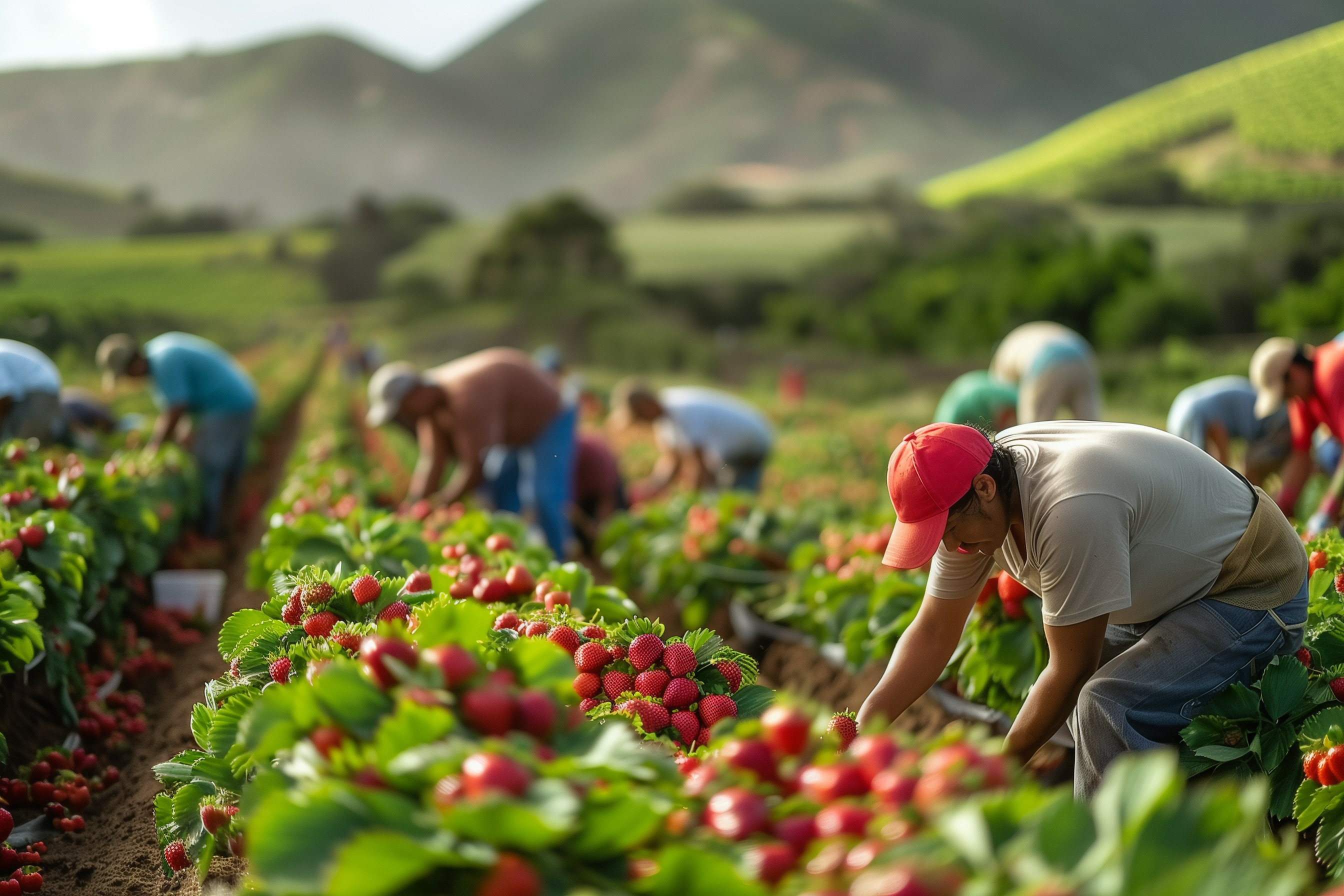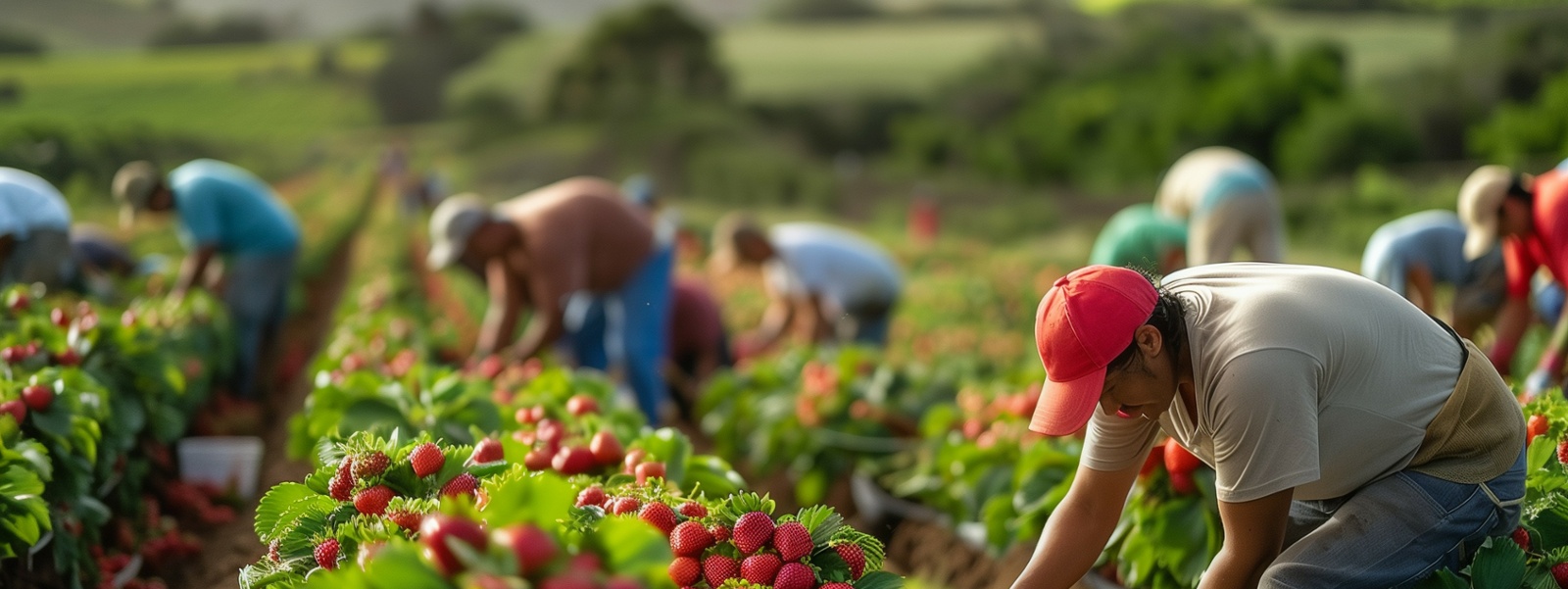Farm Bureau voices support for farm employees, reforms


Amid erroneous news reports and social media posts that claimed immigration enforcement raids had caused widespread labor shortages affecting citrus harvest in the Central Valley, the California Farm Bureau worked to dispel the rumors.
The organization said it has been in contact with numerous farmers across the state and has not heard of any widespread workforce disruption.
Bryan Little, senior director of policy advocacy at the California Farm Bureau, which represents more than 26,000 farm and ranch families in the state, said concerns exist, but farms continue to operate. While it remains unclear if all farms are fully operational, he said Farm Bureau has not received reports indicating otherwise, and efforts are always underway to ensure workforce stability.
“We recognize that some workers may feel uncertain right now, and we want to be very clear: California agriculture depends on and values its workforce,” Little said. “Farm employees are not just workers—they are partners in this industry. They are people with families, dreams and an incredible work ethic that keeps food on tables across America.
“We understand the uncertainty some might feel right now,” he continued, “and we want to be absolutely clear: California’s farmers stand with you. We respect you. We value you, and we will do everything in our power to ensure that agriculture remains a place where you are safe and supported.”
About a third of the nation’s agricultural workforce is located in California. Many are skilled workers who plant, cultivate and harvest the crops that make California the nation’s leading producer of fruits, vegetables and nuts.
“Without these employees, crops would go unharvested, rural businesses would suffer, and food prices could rise for families across the country,” Little said. “This is not just a farm issue—it’s a food security issue, an economic issue and a community issue.”
He pointed to the interdependence of agriculture and rural economies: Thousands of employees in agricultual-adjacent industries—including food processing, transportation and equipment suppliers—depend on the steady flow of agricultural work to sustain their livelihoods.
Little emphasized the urgent need for immigration policy reform, noting farmers and ranchers have struggled for years with chronic labor shortages, and uncertainty surrounding immigration policy has only exacerbated the problem.
To provide a long-term solution, Little outlined three key priorities for workforce reform: modernizing the H-2A agricultural visa program to make it more flexible and responsive to the labor needs of farmers and ranchers; providing earned legal status for current agricultural workers, recognizing their longstanding contributions to U.S. food production; and crafting immigration policies that reflect the reality of agriculture in a diverse state such as California, where workforce stability is essential to feeding the nation.
Little said California farmers and ranchers are ready to work with the Trump administration and Congress to advance real, bipartisan workforce reforms this year.
“This isn’t just about filling jobs—it’s about ensuring security and stability for the agricultural workforce and the farmers who depend on them,” he said.
While Farm Bureau supports lawful immigration policies, the organization cautioned against indiscriminate enforcement actions that do not account for workforce stability.
“We need policies that offer real solutions rather than uncertainty,” Little said. “If we want a strong agricultural economy and a secure food supply, we need solutions that reflect the reality of farming—not blanket enforcement measures that put the entire agricultural system at risk.”
Little said Farm Bureau remains in close contact with worker advocates, policymakers and agricultural leaders to monitor any reports of workforce disruption and to help ensure that farms continue to function smoothly during the state’s harvest periods.
“California Farm Bureau will continue to advocate for practical, compassionate solutions that protect our workforce, stabilize our industry and secure America’s food supply,” Little said, reiterating farmer support for farm employees. “As harvest season approaches in key growing areas, we will do everything in our power to ensure a stable and secure workforce, a dependable food supply and a strong agricultural economy for the future.”




